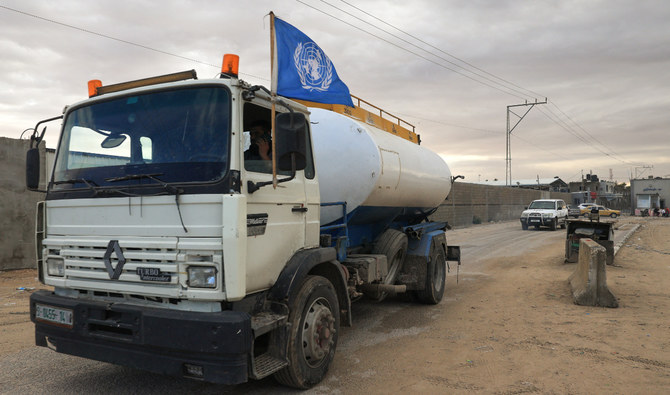LONDON: Israel’s war with the Palestinian militant group Hamas in densely populated Gaza has exposed deep fractures in the international system, leaving many asking how the UN’s “two-tier” model can realistically live up to its purported aim of achieving global peace.
Criticism of the post-1945 international order is not new. In the context of Palestine, there have been innumerable UN General Assembly resolutions stretching back decades condemning Israel’s conduct in the occupied territories that have not been acted upon.
But with a deadlock among the permanent members of the UN Security Council — the body’s enforcement arm — and unanimity in the UN General Assembly on the need for an immediate ceasefire, questions have again arisen as to whether the UN is fit for purpose.
Wayne Jordash, a King’s Counsel and managing partner of Global Rights Compliance, says it is easy to roundly dismiss UN resolutions as lacking efficacy and teeth, and in the context of Gaza, there is clearly a lack of consensus in the Security Council around a ceasefire.
“Unfortunately, a similar assessment could be put forward for Tigray and Ethiopia and during the earlier years of the war in Syria,” he told Arab News.
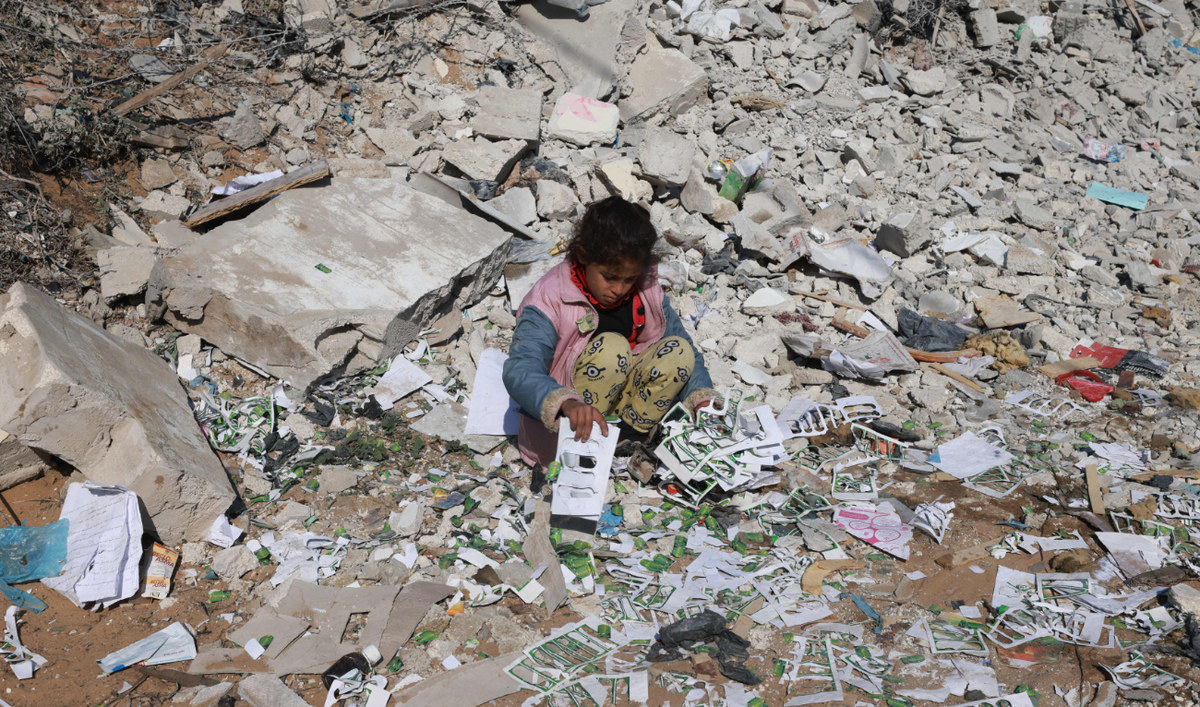
A Palestinian girl looks for salvageable items amid the destruction on the southern outskirts of Khan Yunis in the war-battered Gaza Strip on January 16, 2024. (AFP)
Dag Hammarskjold, the Swedish diplomat who served as UN secretary-general from 1953 to 1961, once said that “the UN was not created to bring us to heaven, but to save us from hell.” More than 60 years later, this assessment still appears to hold true.
Omer Bartov, professor of Holocaust and genocide studies at Brown University, Rhode Island, told Arab News that, given the choice, “having an international forum for states is much better than not having one.”
For the Palestinian population of the Gaza Strip, who have endured months of Israeli bombardment and strict controls on the delivery of humanitarian aid, Bartov’s comments likely offer little in the way of reassurance.
INNUMBERS
- 25,000+ Palestinians killed in Gaza fighting so far.
- 2m+ Palestinians displaced in Gaza since Oct. 7.
- 1,300 People killed in Hamas-led Oct. 7 attack in Gaza.
- 240 Estimated people taken into Gaza as hostages.
Emily Crawford, a professor at the University of Sydney Law School, says the lack of immediate respite resulting from UN resolutions is often interpreted as inaction or impotence.
“Some resolutions are absolutely effective. The problem is they take time, and so a principle enunciated in a resolution may take years before it is accepted as binding international law with states complying accordingly,” Crawford told Arab News.
“Unfortunately, during wartime, victims don’t have the luxury of waiting for a resolution to eventually crystallize into international law.”
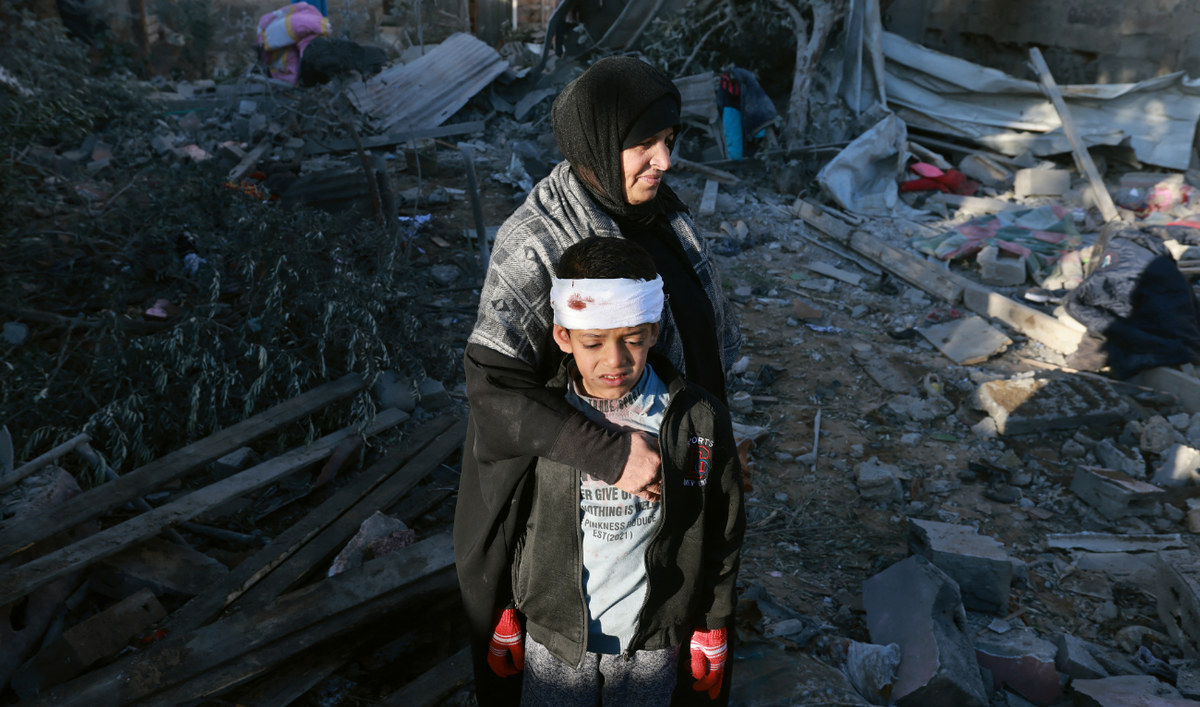
A Palestinian woman embraces an injured boy as they check the rubble of a building following Israeli bombardment, on January 18, 2024 in Rafah in the southern Gaza Strip. (AFP)
Louis Charbonneau, UN director at Human Rights Watch, has urged member states to use all available leverage in ensuring resolution compliance but is not blind to the reality of Israeli authorities ignoring both the General Assembly and the Security Council.
Such resistance was evident in the words of Israel’s prime minister a day after his country presented its defense in the genocide case brought against it by South Africa at the UN’s top court, the International Court of Justice.
“No one will stop us, not The Hague, not the Axis of Evil (referring to Iran and its militia proxies) and no one else. It is possible and necessary to continue until victory and we will do it,” Benjamin Netanyahu said.
Furthermore, aid agencies continue to decry what they consider to be the Israeli army’s deliberate holdups of the delivery of food and medicines in defiance of a Dec. 22 UN Security Council resolution.
“They continue to obstruct the entry of food, water, medicine and other essential goods into Gaza and make it extremely difficult and dangerous for that aid to reach all parts of Gaza,” Charbonneau told Arab News.
“Israel’s government is using starvation as a weapon of war, a war crime. Palestinian armed groups continue to indiscriminately fire rockets at civilian areas in Israel, also a war crime.”
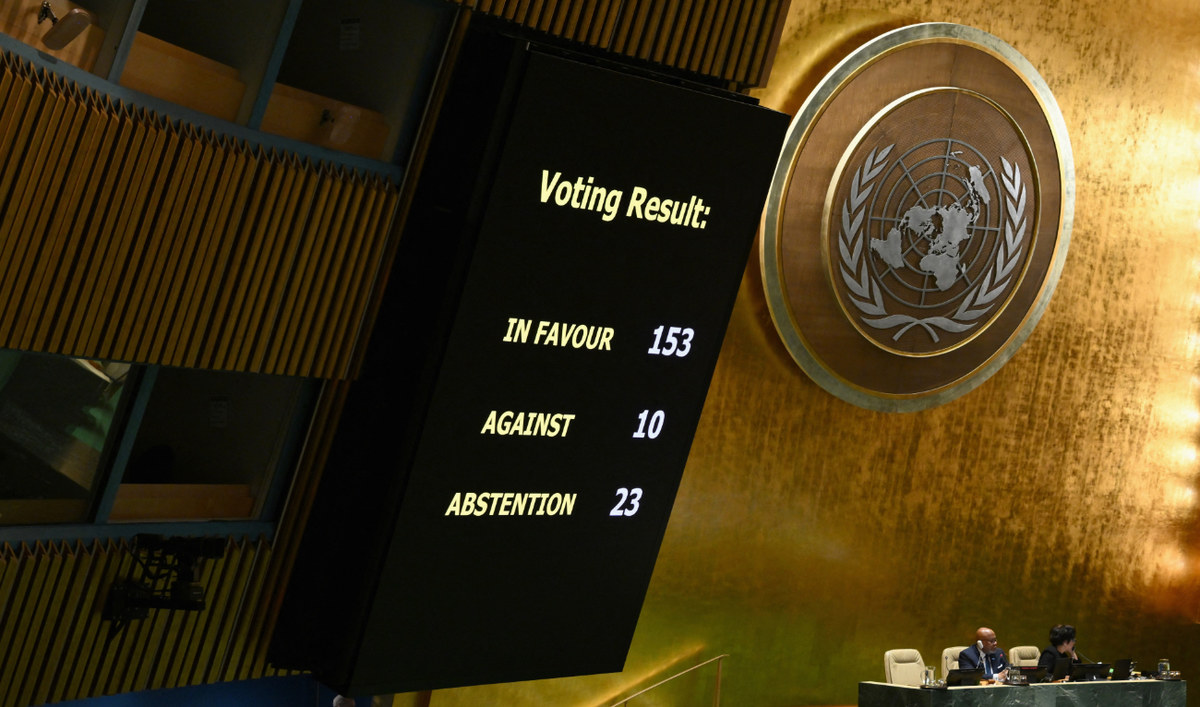
A general view shows voting results during a UN General Assembly meeting to vote on a non-binding resolution demanding “an immediate humanitarian ceasefire” in Gaza on December 12, 2023. (AFP/File)
In some respects, understanding the UN’s effectiveness through the lens of the Israeli-Palestinian conflict may itself prove counterproductive.
Meir Javedanfar, a lecturer at Israel’s Reichman University, believes it is important to discern the ways in which the parties involved affect a UN response.
Equally, he says, it is important to understand the twin limbs of the UN, with the General Assembly seen as offering a consensus international view with all member states able to vote.
Concurrently, the Security Council presides over the UN’s enforcement arm and, at any one time, is made up of 15 members, including the permanent five — China, France, Russia, the UK, and the US — who, through a veto right, can block resolutions.
Javedanfar argues that Washington’s use of its Security Council veto power was not intended to engender or suggest any sort of support for Palestinian suffering.
“The US is not using its veto because it wants the Palestinians to starve. It would not be in its interest to see that happen. They veto because they can see it is not just a question of pushing Israel to allow more humanitarian aid,” he told Arab News.
“It is the issue that Hamas, on the other side, has been stealing food and fuel and inspecting all this humanitarian aid. The UN is just part of the issue. It is also both of the parties involved.”

Trucks with humanitarian aid wait to enter the Palestinian side of Rafah on the Egyptian border with the Gaza Strip on December 11, 2023. (AFP/File)
Some believe the inability of the General Assembly to impose any of its decisions exposes its shortcomings.
Dr. Ziad Asali, founder of the non-profit American Task Force on Palestine, says that without military or political tools to enforce decisions, the General Assembly would always be dependent on the states involved.
However, as Crawford points out, this was never the purpose of the General Assembly. “How do you measure the effectiveness of an instrument that was never meant to have binding force?” she said.
Given the UN Security Council’s power, by contrast, to impose compliance through the use of force, a question that has consistently been raised over the course of the Gaza conflict is why it has failed to do so.
Indeed, a month after the Dec. 22 UN Security Council resolution was passed, aid deliveries into Gaza have still not been ramped up.
“It has always been clear that the resolution adopted last month would only be implemented if the US insisted on it,” said Charbonneau.
“So, it’s up to the US, which worked hard to dilute the resolution during negotiations on the text, to use its considerable influence to make sure Israel complies with its obligations.”
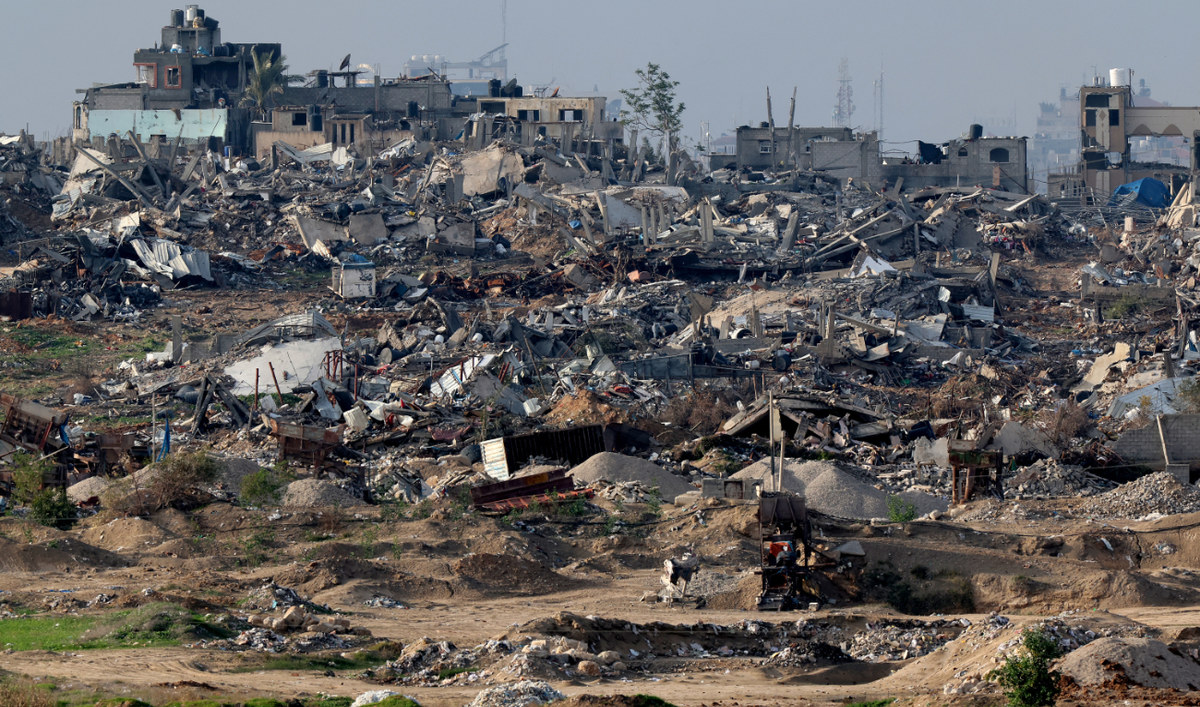
A picture taken from southern Israel shows destroyed buildings in the Gaza Strip on January 17, 2024. (AFP)
Bartov, of Brown University, says the readiness with which the US has used its veto in instances where the Security Council has sought to reprimand Israel, has had a pronounced effect on the international community and could have long-term consequences for the make-up of the UN.
According to him, pressure is building on the UN to either rescind the veto right or for the US to change its policy, he said.
“The US is clearly indicating it may not veto resolutions on Israel without a change in Israeli policy,” he said. “And the humanitarian catastrophe in Gaza is making it ever more difficult for the UN not to discuss, expose, and move against Israeli policies in Gaza.”
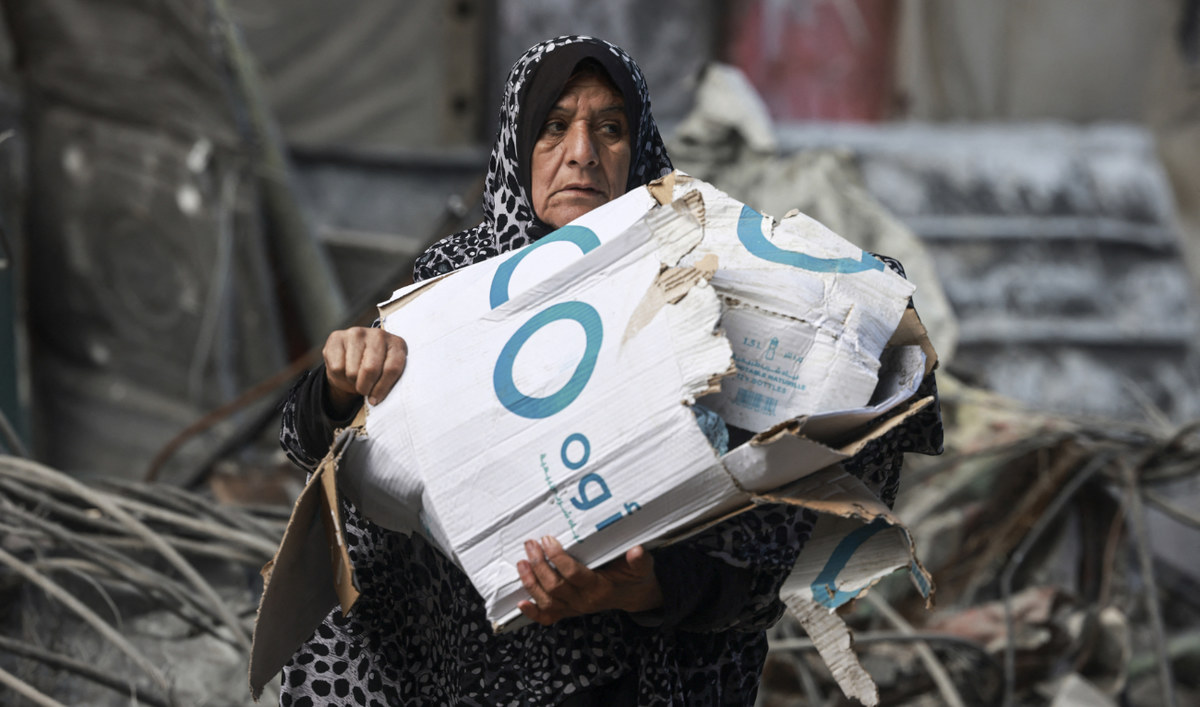
A woman carries cardboard boxes to use for a fire in Rafah on the southern Gaza Strip on January 14, 2024. (AFP)
Notwithstanding the UN’s issues, Jordash, the King’s Counsel, says resolutions keep member states engaged in an issue, which could bring additional impetus to those states not complying with them.
For instance, non-compliant states could suffer reputational costs or find themselves subjected to sanctions.
Likewise, Charbonneau believes the need for members to continue to “use all their leverage with recalcitrant governments” could not be overstated.



